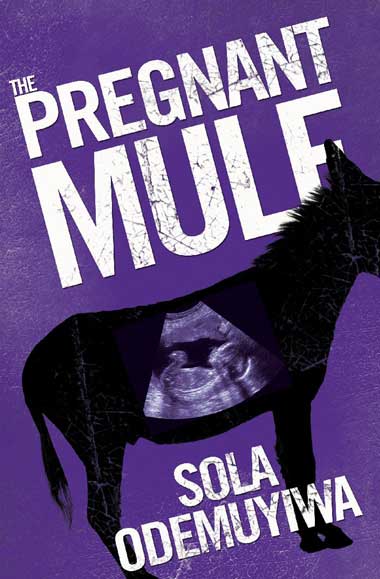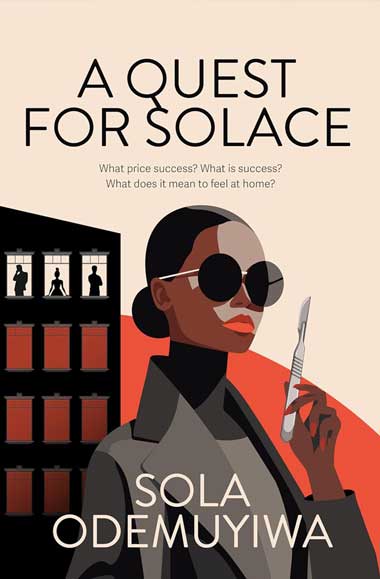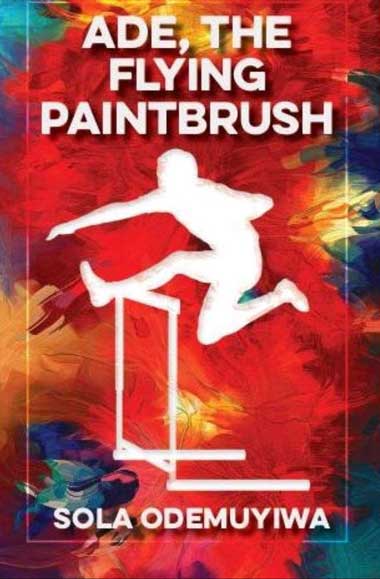His real name was Asiri Oniseme but most people called him Sandman; only behind his back. Some said he got his name because his gown and fez made him look like a desert dweller. Koseri, Dele’s best friend said it was because the way his head and neck jerked forward when he walked made him look like a chicken pecking at sand. Dele’s dad said the name suited him because the man was always hatching or laying a plot.
Everything about Sandman, his squeaky voice, long neck, the shifty eyes placed almost on the side of his narrow long face, as if made from a mask too big for him, or as though the eyes could not stand each other, made little children cringe.
Yet, after a quiet word from a grateful predatory landlord, Babubacka, the head of the Military Government, had appointed Sandman to Minister for Indigenous Matters and of the Interior. Finally, he made him the Haka of Roko, resurrecting an ancient title — a cross between Finance and Health Minister.
It was Christmas Eve in Sankara, Roko. Sandman sank into the lush leather seats of his official blue limousine on his way to chair a meeting of the Council of Indigenous Elders. They came off the motorway and for an hour the car rocked over the bush tracks through the dense forest until they arrived at a sandy clearing about a hundred metres from the Goke Rocks, an outcrop of jumbled black rocks three storeys high.
After a ministerial lunch of rice, beans and giant forest snails, Sandman sat back with the air conditioner at full blast to wait for the elders. As the clock on the dashboard clicked to two minutes past two twelve men, in white robes and caps, each carrying a horse whisk, emerged from a cave in single file. One of the men recognised Sandman and beckoned him over.
‘Leave the engine running and air conditioner running,’ said Sandman.
‘Minister,’ said the man. The other elders murmured and bowed to Sandman. Sandman ‘I thank you for your hospitality from the bottom of my heart.’
Porters had erected red-cushioned stools and black umbrellas for the councillors; the more senior the councillor, the larger the umbrella. Sandman sat in the front row, next to the most senior councillor, whose umbrella was so large it took two grown men to hold it upright.
A hunchback with a large goitre, the head of the Guild of women priests, poured libations out of a bottle of Scottish whisky. Then the elders performed a ritual screwing of their right heels into the dust, a symbol of the grounding of their verdict in the tradition and in accordance with the spirits of the departed, turned as one and bowed before the grim rocks. Afterwards, the old woman priest retreated into the mist, walking backwards,
The session started. First, they discussed the case of a man whose children had been disinherited by the wiles of a foreign girl. She married their father on his deathbed. Sandman decided that foreign affairs was not within his jurisdiction and dismissed the case. He made a mental note to dispose of the matter in his own way. Then they moved on to a dispute between two factions in the main village mosque over what to do with a strip of land bequeathed by an elder who died intestate abroad. One group wanted to set up a clinic and the other wanted to expand the mosque. The case for each group could only be presented by an elder. After the speeches the senior chief, the embodiment of the spirit of his ancestors, got off his stool, whisked the flies away, looked around the clearing and sat down. ‘I regret that my children, our descendants, have fallen out over such a trivial matter,’ he said, shaking his head as was the custom, the corners of his mouth drooping like soggy peapods.
After sixty clangs of a large cowbell, the two youngest members of council ran over to lie face down before Sandman. ‘We beg you. Give us the benefits of your experience.’ By custom Sandman feigned indignation by folding his arms and turns his face away until, eventually, he nodded. ‘I agree. The spirits have passed judgement.’
Sandman waited for the hubbub to fade. He waved the whisk at representatives of the warring groups. ‘If you have not settled by the end of the next week each of you will have to pay five thousand Roko in fines, and the mosque will have to close. We will use the money to build a mosque at one end and a clinic at the other end of the village,’ he said.
The applicants thanked Sandman bowed their heads and sauntered off the square. Everyone clapped and waved their umbrellas, or had them waved by the young assistants, elders in training.
Sandman got up. ‘Merry Christmas. I thank you elders for your custody and your defence of traditional values. Those who are not of these parts do not understand. But as you can see these cases cost the rest of our community nothing. In abroad…as you may know…I lived in abroad for many years, dey would have fought for years, government would have to pay millions of pounds or dollars and still dey take fifty years to decide to build one airport. They then spend another ten years to build it.’ They laughed. ‘Our traditional ways are de best,’ said Sandman. The session ended at five with an acrobatic display by a dozen young men on silver bicycles. After, his heart still singing from the standing ovation, Sandman sought the plaintiff in the inheritance case – a middle-aged man of slim build with a flat and runny nose. ‘Leave it with me,’ he told the man. ‘We will teach the foreigner not to mess with genuine, original, Siroko people.’
Back in his ministerial car, Sandman made a few phone calls. Two days later, on Boxing Day, the foreign lady named in the probate case had her head cracked open. ‘Just wide enough for commonsense to get in,’ said Sandman when he telephoned his client. The dent in the woman’s head must have prevailed on her to sign away her claim because Sandman soon received from a grateful client, a cheque for five hundred Roko. Another win-win for the Siroko way of life he thought as flopped into his emperor-sized ministerial bed later that night.




